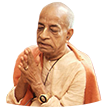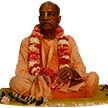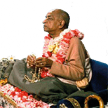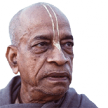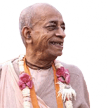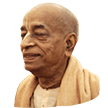Hatha-yoga - an essential subject: Difference between revisions
(Created page with "Category:Essential Subjects <!----------------------- edit below this line -----------------------> <!------------------------ begin introduction text below --------------...") |
(Vanibot #0041: Moves Choose Another box to the end) |
||
| Line 2: | Line 2: | ||
<!----------------------- edit below this line -----------------------> | <!----------------------- edit below this line -----------------------> | ||
<!------------------------ begin introduction text below ------------------------> | <!------------------------ begin introduction text below ------------------------> | ||
The yogic practices in general and haṭha-yoga in particular are not ends in themselves; they are means to the end of attaining steadiness. First one must be able to sit properly, and then the mind and attention will become steady enough for practicing yoga. Gradually, one must control the circulation of vital air, and with such control he will be able to withdraw the senses from sense objects. In the previous verse it is stated that one must observe celibacy. The most important aspect of sense control is controlling sex life. That is called brahmacarya. By practicing the different sitting postures and controlling the vital air, one can control and restrain the senses from unrestricted sense enjoyment. The haṭha-yoga system, or breathing system, is especially recommended for those who are very absorbed in the concept of bodily existence, but one who can perform the simple process of chanting Hare Kṛṣṇa can fix the mind more easily. | |||
Srila Prabhupada's books, lectures, conversations and letters offer a comprehensive presentation of this essential subject as seen in the Vaniquotes '''[[Vaniquotes:Category: | Srila Prabhupada's books, lectures, conversations and letters offer a comprehensive presentation of this essential subject as seen in the Vaniquotes '''[[Vaniquotes:Category:Hatha-yoga|Hatha-yoga]]''' category. An introduction from his books is given below in the following 8 quotes. | ||
<!-------- end introduction text and don't touch next three lines ---------> | <!-------- end introduction text and don't touch next three lines ---------> | ||
== Quotes from Srila Prabhupada's books == | == Quotes from Srila Prabhupada's books == | ||
<!----------------- edit quote boxes below this line -----------------> | <!----------------- edit quote boxes below this line -----------------> | ||
{{VaniQuotebox| | {{VaniQuotebox|A paramahamsa, or pure devotee, is never attracted by hatha-yoga or speculative knowledge. He is simply interested in the unalloyed devotional service of the Lord|A paramahaṁsa, or pure devotee, is never attracted by haṭha-yoga or speculative knowledge. He is simply interested in the unalloyed devotional service of the Lord. Sometimes one who was formerly addicted to these processes tries to perform devotional service and the jñāna and yoga practices at the same time, but as soon as one comes to the unalloyed stage of devotional service, he is able to give up all other methods of self-realization. '''(Śrīmad-Bhāgavatam 4.23.12)'''}} | ||
{{VaniQuotebox| | {{VaniQuotebox|One who sticks to a particular point and does not make further progress is called by that particular name: karma-yogi, jnana-yogi or dhyana-yogi, raja-yogi, hatha-yogi, etc|The yogī who is progressive is therefore on the true path of eternal good fortune. One who sticks to a particular point and does not make further progress is called by that particular name: karma-yogī, jñāna-yogī or dhyāna-yogī, rāja-yogī, haṭha-yogī, etc. If one is fortunate enough to come to the point of bhakti-yoga, it is to be understood that he has surpassed all other yogas. '''(Bhagavad-gītā 6.47)'''}} | ||
{{VaniQuotebox| | {{VaniQuotebox|The hatha-yoga system is meant for controlling the five kinds of air encircling the pure soul by different kinds of sitting postures - not for any material profit, but for liberation of the minute soul from the entanglement of the material atmosphere|The haṭha-yoga system is meant for controlling the five kinds of air encircling the pure soul by different kinds of sitting postures—not for any material profit, but for liberation of the minute soul from the entanglement of the material atmosphere. So the constitution of the atomic soul is admitted in all Vedic literatures, and it is also actually felt in the practical experience of any sane man. Only the insane man can think of this atomic soul as all-pervading viṣṇu-tattva. '''(Bhagavad-gītā 2.17)'''}} | ||
{{VaniQuotebox| | {{VaniQuotebox|The hatha-yoga system, or breathing system, is especially recommended for those who are very absorbed in the concept of bodily existence, but one who can perform the simple process of chanting Hare Krsna can fix the mind more easily|The real purpose of controlling the mind by the prescribed method of clearing the passage of the life air is achieved immediately if one fixes his mind directly on the lotus feet of Krsna. The hatha-yoga system, or breathing system, is especially recommended for those who are very absorbed in the concept of bodily existence, but one who can perform the simple process of chanting Hare Krsna can fix the mind more easily. '''(Śrīmad-Bhāgavatam 3.28.9)'''}} | ||
{{VaniQuotebox| | {{VaniQuotebox|The jnana-yoga system aims at the impersonal Brahman effulgence, and the hatha-yoga system aims at the localized personal aspect, the Paramatma feature of the Absolute Truth|The jñāna-yoga system aims at the impersonal Brahman effulgence, and the haṭha-yoga system aims at the localized personal aspect, the Paramātmā feature of the Absolute Truth, whereas bhakti-yoga, or devotional service, which is executed in nine different ways, headed by hearing and chanting, aims at complete realization of the Supreme Lord. There are different methods of self-realization. '''(Śrīmad-Bhāgavatam 3.25.29)'''}} | ||
{{VaniQuotebox| | {{VaniQuotebox|The yoga system, as described in Srimad-Bhagavatam and Bhagavad-gita or as recommended in the Patanjali yoga process, is different from the nowadays practiced hatha-yoga as it is generally understood in the Western countries|The yoga system, as described in Śrīmad-Bhāgavatam and Bhagavad-gītā or as recommended in the Patañjali yoga process, is different from the nowadays—practiced haṭha-yoga as it is generally understood in the Western countries. Real yoga practice is to control the senses and, after such control is established, to concentrate the mind on the Nārāyaṇa form of the Supreme Personality of Godhead, Śrī Kṛṣṇa. '''(Śrīmad-Bhāgavatam 3.15.45)'''}} | ||
{{VaniQuotebox| | {{VaniQuotebox|The yogic practices in general and hatha-yoga in particular are not ends in themselves; they are means to the end of attaining steadiness|The yogic practices in general and haṭha-yoga in particular are not ends in themselves; they are means to the end of attaining steadiness. First one must be able to sit properly, and then the mind and attention will become steady enough for practicing yoga. Gradually, one must control the circulation of vital air, and with such control he will be able to withdraw the senses from sense objects. '''(Śrīmad-Bhāgavatam 3.28.5)'''}} | ||
{{VaniQuotebox| | {{VaniQuotebox|There are many impediments, especially in this age of hypocrisy, to practicing hatha-yoga, dhyana-yoga and jnana-yoga, but there is no such problem in executing karma-yoga or bhakti-yoga|The best practice of yoga in this age is Kṛṣṇa consciousness, which is not baffling. A Kṛṣṇa conscious person is so happy in his occupation that he does not aspire after any other happiness. There are many impediments, especially in this age of hypocrisy, to practicing haṭha-yoga, dhyāna-yoga and jñāna-yoga, but there is no such problem in executing karma-yoga or bhakti-yoga. '''(Bhagavad-gītā 6.20-23)'''}} | ||
<!----------------- edit quote boxes above this line -----------------> | <!----------------- edit quote boxes above this line -----------------> | ||
''' | '''Hatha-yoga - [[Vaniquotes:Category:Hatha-yoga|explore more within this category]]'''. | ||
{{EsentialSubjectTotal}} | {{EsentialSubjectTotal}} | ||
<div style="float:left;"> | |||
{{EssentialSubjectnav}} | |||
</div> | |||
__NOTOC__ | __NOTOC__ | ||
__NOEDITSECTION__ | __NOEDITSECTION__ | ||
Latest revision as of 16:32, 22 November 2020
The yogic practices in general and haṭha-yoga in particular are not ends in themselves; they are means to the end of attaining steadiness. First one must be able to sit properly, and then the mind and attention will become steady enough for practicing yoga. Gradually, one must control the circulation of vital air, and with such control he will be able to withdraw the senses from sense objects. In the previous verse it is stated that one must observe celibacy. The most important aspect of sense control is controlling sex life. That is called brahmacarya. By practicing the different sitting postures and controlling the vital air, one can control and restrain the senses from unrestricted sense enjoyment. The haṭha-yoga system, or breathing system, is especially recommended for those who are very absorbed in the concept of bodily existence, but one who can perform the simple process of chanting Hare Kṛṣṇa can fix the mind more easily.
Srila Prabhupada's books, lectures, conversations and letters offer a comprehensive presentation of this essential subject as seen in the Vaniquotes Hatha-yoga category. An introduction from his books is given below in the following 8 quotes.
Quotes from Srila Prabhupada's books
Hatha-yoga - explore more within this category.
Vanipedia has now over 903 introductory articles compiled from Srila Prabhupada's books under the series titled Essential Subjects. All these articles can be seen in the Table of Content on the right side of this article and also here in this Umbrella Category. Browse through them to relish the breadth and depth of Srila Prabhupada's teachings - There is a subject for everyone.
